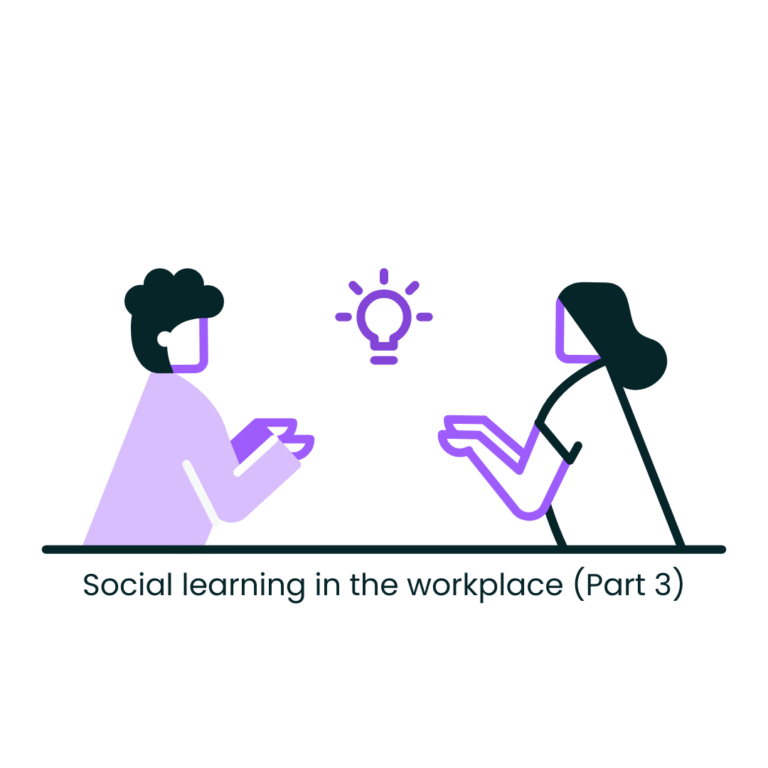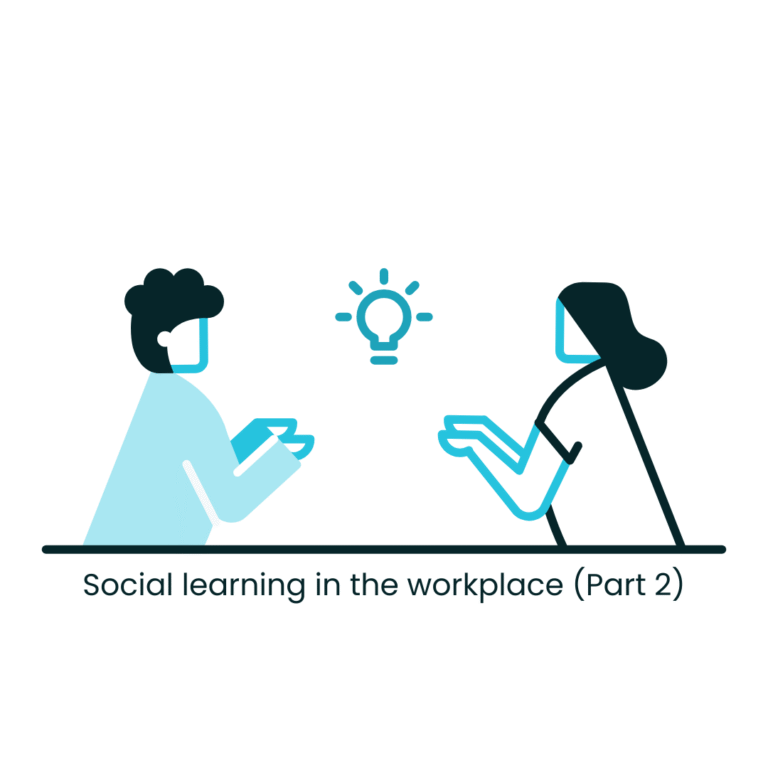Guest post by Totata partner Think Learning
Artificial Intelligence (AI) is a subject that has been hot on the tongues of learning and development professionals at L&D events and across social media.
In fact, AI took second place in Donald Taylor’s L&D Global Sentiment Survey for 2023, moving up by 9.2% from 2022.
With the world of work rapidly changing, L&D professionals must take care to keep ahead of the curve.
The rise of AI in the workplace
The world of work has been in constant flux since the Covid-19 pandemic.
AI has further fuelled that change and left people wondering how it will change, or even replace, their role.
ChatGPT, developed by OpenAI, stormed the marketplace, giving businesses an opportunity to play around with real AI.
Consequently, endless browser extensions and apps have been created, with curated lists of the best tools to help you ‘save time at work’ ranking on LinkedIn. And while there are plenty of tools on the market, it can be hard to distinguish which ones can make a difference to your business processes.
And more specifically, how could AI impact the world of learning and development?
While many companies are already asking for AI capabilities for their learning and performance platforms, a lot is yet to be created.
Current AI functionality that does exist in the L&D space is pretty simple. And we also have data security to think about too. A lot of the current tools on the market would require learning solutions like Think Learning to open up our secure systems.
However, it’s always good to be prepared for the future. As such, here are a few ways the Think Learning team believe AI could shape L&D in the future:
Adaptive learning for customised learning experiences
Each learner is unique. What comes with that is a different preference from learning formats, types and duration. One learner may prefer watching long-form videos while another may prefer reading learning content.
Forcing users to learn in the same way could impact your engagement. And it could impact their learning retention too.
AI can help this by changing how we approach learning.
We could revolutionise the learning experience by applying AI algorithms to serve dynamic content to learners based on their learning style.
This tailor-made learning solution would allow employees to learn at their own pace. This approach can boost knowledge acquisition, engagement and retention rates.
Competency and gap analysis
Ensuring compliance is one of the biggest challenges that L&D professionals face. Engaging users in their compliance training can be difficult as users often see it as a ‘click and tick’ exercise.
One solution to this is using AI to assess learner skills and competency gaps and then promoting specific learning pathways to ‘fill in the gaps’.
This means that learners are only served training content that they need and it encourages them to retain and develop their learning as it means less work for them in the long-run.
Content creation
ChatGPT is the most talked about AI tool at the moment. And for good reason. Its copywriting skills are used across industries for a wide range of use cases.
But this type of AI can also be used in L&D.
From initial workshop outlines, implementation plans to actual learning content, AI can speed up the content creation process to help you scale your training at a faster pace.
Not only that, but could it be used to create new content based on existing resources. For example, if you were looking to create different versions of content to suit different learners, AI could help fill that gap. This means you could reduce reliance on expensive, third-party content creation tools and keep your learning content creation within your LMS.
Virtual mentoring
We know the impact of mentoring. 90% of workers who have a mentor report being happy in their job.
But mentoring requires a significant time investment from the mentor. AI could be a stop gap here.
By offering a virtual mentor powered by AI and machine learning, your learner could get continuous guidance at any time.
While AI in its current form is not on par with the breadth of experience or capability of a real-life coach or mentor, there’s no saying what the future could hold when it comes to virtual mentoring.
Next steps for AI in L&D
While AI in its current form isn’t going to revolutionise the learning experience, it has the potential to do so in the future.
L&D professionals need to equip themselves with the necessary tools to be able to make that leap.
From consolidating your people data to formulating a learning strategy, having a smart learning solution in place will give you a solid framework to jump off of when the AI tools you’re looking for come to fruition.
In the short term, AI proves to be a game-changer for productivity-based tasks, enabling our often-overworked clients to populate courses and content in record time.
With ChatGPT’s assistance, crafting quizzes for question banks becomes a breeze, and we’re excited about the possibility of an AI-powered tool that can transform a PowerPoint presentation into a simple SCORM package.
However, it’s crucial to emphasize that human intervention remains essential. While AI productivity tools deliver impressive outputs, they’re not infallible to biases or inaccuracies in language.
Looking ahead to the mid-term, we envision AI playing a vital role in enhancing chatbots and customer service experiences.
Though some fine-tuning may be necessary, the efficiency gains from an AI-driven chatbot are undeniable.
However, our true excitement lies in the long-term potential of AI in learning experiences. We’re already leading the charge with groundbreaking initiatives such as content recommendations, avatar integration, gamification, and competency gap analysis.
As AI becomes more integrated into our learning management system, we anticipate a profound impact on learner engagement and content personalization. Our goal is to ensure a consistent and meaningful experience for every learner, although we remain cautious not to create echo chambers that hinder personal growth.
At Think, our team has already started exploring the possibilities of AI in our mentoring tool, ThinkLink. We’re excited about the potential for virtual mentoring, and we’re diligently planning the steps required to make this a reality in the near future. Our commitment to embracing AI responsibly proactively positions us at the forefront of the transformative power that AI holds.






